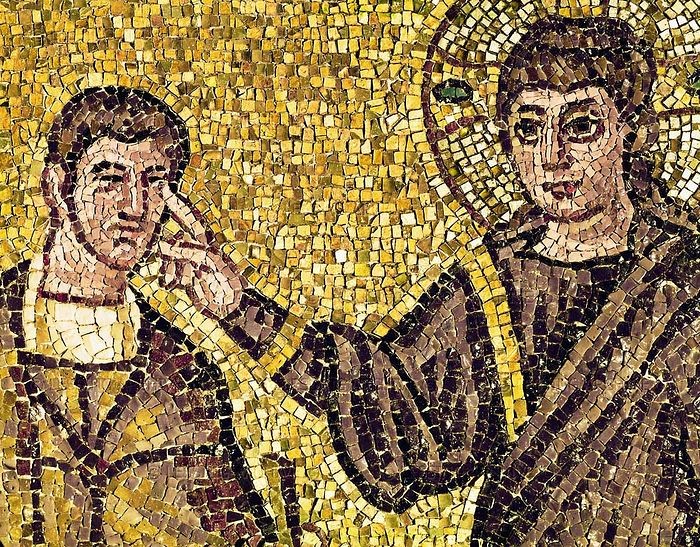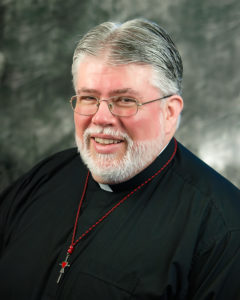Neither he nor his parents sinned;
it is so that the works of God might be made visible through him. (John 9:3)
By Fr. Steve Dos Santos, C.PP.S.
When I was a student at Catholic Theological Union in Chicago, I took a class entitled “Preaching the Gospel of John” at the Lutheran School. It was team taught by a Scripture scholar and a homiletics professor. The homiletics professor, Craig Satterlee, was blind; and he warned us that whoever got this passage would have to remember that they would have an actual blind person in their assembly when it was their turn to preach.
The healing stories in the Gospel are wonderful examples of the power of God at work in the world. And they are reminders that God can and still does work miracles. But the warning that Professor Satterlee raised for us is the ever-present question: what about those who aren’t healed? What does it mean that some are healed, but others aren’t?
I can tell you what it doesn’t mean. It absolutely does not mean that if you are not healed, God loves you less. God’s love is abundant and extravagant for each and every one of us, even for the one who has been praying for healing for years and is still waiting. God’s love for you is bigger than healing. As much as that healing would mean to you, God’s love is greater.
That may not be much consolation, but it’s true. Blindness, weakness and disease are not punishment for sin. And healings are not about the faith, righteousness, or belovedness of the one who receives them. Jesus tells us clearly that they are places where “the works of God might be made visible.” We hear that in this story and we think healing since the man is healed. But it could mean all sorts of things.
A friend of mine has a daughter with serious food allergies. Ruthie’s allergies impact the whole family. Halloween is a nightmare in a house with severe peanut allergy. But mom and dad have taught Ruthie’s siblings that all this stuff they do is an act of love. And Ruthie is never made to feel that she is a burden on them. Every Snicker bar that can’t enter the house is a “work of God made visible.”
A twelve step meeting is another place to see this dynamic at work. Most twelve-steppers would never say that they have been healed, only that they have managed to stay sober. Through hard work, dedication and mutual support, they eke out day after day of sobriety. Each day is a “work of God made visible.”
Allow me to point out one more way that not being healed makes the “work of God visible.” As you struggle through your infirmity, and persevere in faith, other people see you. Sometimes those people are on the verge of giving up. Maybe their battle is bigger than yours, maybe it’s not. But the example of your perseverance gives them the strength to keep on going. Your imperfect struggle becomes a “work of God made visible.”
We can all look forward to that day when all will be healed in us. Eternity will bring us all to perfection. In the meantime, we walk in faith, trusting that if God hasn’t healed us yet, it’s for a reason. So that “the works of God may be made visible” in us.
Originally from Alameda, Calif., Fr. Steve Dos Santos, C.PP.S., served for a number of years at St. Agnes Parish in Los Angeles. He is now the vocation director of the Missionaries of the Precious Blood.


